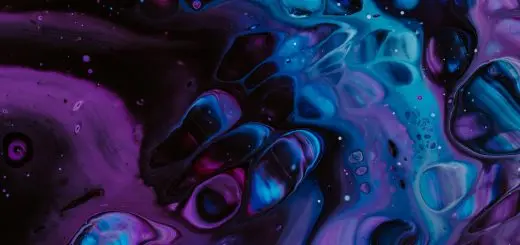The Bicho Papão: Mythical Creature of Portugal

Looking for more amazing products? Check out our online store and explore our collection here! Happy shopping!
Before diving in, please note: This post is for informational purposes only. If you’d like to know more about how we approach topics, feel free to check out our friendly Disclaimer Page.
Hey there, amazing readers! 
We’re committed to delivering quality posts, and your support (even just sticking around despite the ads) means everything to us. So, bear with us, and thanks for helping us keep the good vibes rolling. Now, on to the fun stuff!
TRANSLATE BUTTON AT THE END OF THE ARTICLE
A Quick Overview
The Bicho Papão, also known as the "Bogeyman" in English, is a mythical creature that originates from Portuguese folklore.
This terrifying figure is used by parents to scare children into behaving.
The Bicho Papão is said to hide under the bed or in dark corners, waiting to snatch naughty children who refuse to go to sleep.
With a sinister reputation, the Bicho Papão has been a prominent figure in Portuguese culture for centuries, instilling fear in the hearts of misbehaving youngsters.
Origins and History of the Bicho Papão
The origins of the Bicho Papão can be traced back to ancient European folklore, where similar boogeyman figures existed in different cultures.
In Portugal, the Bicho Papão’s legend evolved over time, becoming a common tale used by parents to discipline their children.
The name "Bicho Papão" translates to "The Eater of Children," emphasizing its role as a menacing creature that preys on mischievous kids.
The story of the Bicho Papão has been passed down through generations, with each retelling adding to its mystique and fear factor.
Physical Attributes of the Bicho Papão
Described as a dark and shadowy figure, the Bicho Papão is often depicted as a tall, cloaked being with glowing eyes and sharp claws.
Its appearance varies in different regions of Portugal, but the common theme is its ability to blend into the darkness, making it a formidable and elusive creature.
The Bicho Papão moves silently and swiftly, striking fear into those who dare to cross its path.
Its sinister appearance adds to the aura of mystery and danger that surrounds this mythical entity.
Legends and Folklore Surrounding the Bicho Papão
According to folklore, the Bicho Papão is said to lurk in the shadows, waiting for disobedient children to come out of their beds at night.
It is believed that the Bicho Papão preys on those who misbehave, especially if they refuse to go to sleep when told.
Parents often use the threat of the Bicho Papão to scare their children into obedience, warning them that the creature will come for them if they don’t behave.
This tale has been passed down for generations, instilling a sense of fear and respect for the Bicho Papão in Portuguese culture.
Cultural Significance of the Bicho Papão in Portugal
The Bicho Papão holds a significant place in Portuguese culture as a symbol of discipline and obedience.
Parents use the threat of the Bicho Papão to teach their children valuable lessons about respecting authority and following rules.
The fear of the Bicho Papão serves as a powerful deterrent for children who might otherwise act out or disobey.
The tale of the Bicho Papão is deeply ingrained in Portuguese society, serving as a cautionary reminder for youngsters to behave and listen to their elders.
Fear and Protection Against the Bicho Papão
The fear of the Bicho Papão is a powerful motivator for children to behave, but there are also traditional methods believed to protect against this mythical creature.
Some families place a shoe or a broomstick at the foot of the bed to ward off the Bicho Papão, as it is said to be afraid of these objects.
Others recommend saying a prayer or reciting a special incantation before bed to keep the creature at bay.
These rituals are passed down from generation to generation, offering a sense of comfort and protection against the dreaded Bicho Papão.
Depictions of the Bicho Papão in Art and Literature
The Bicho Papão has been a popular subject in Portuguese art and literature, with many artists and writers using this mythical creature as inspiration for their work.
Paintings, sculptures, and illustrations often depict the Bicho Papão as a dark, menacing figure lurking in the shadows.
In literature, the Bicho Papão is featured in various tales and stories, adding to its mystique and allure.
These artistic interpretations help to solidify the Bicho Papão’s place in Portuguese culture and folklore.
Similar Creatures in Other Cultures
While the Bicho Papão is a unique creature in Portuguese folklore, there are similar boogeyman figures that exist in other cultures around the world.
For example, in English-speaking countries, the "Boogeyman" is a well-known mythical creature used to scare children into behaving.
In Latin America, the "El Cuco" serves a similar purpose, instilling fear in disobedient youngsters.
These variations of the boogeyman share common themes of lurking in the shadows and preying on misbehaving children, highlighting the universal fear of the unknown that transcends cultural boundaries.
Modern Interpretations and Adaptations of the Bicho Papão
In modern times, the Bicho Papão has been adapted and reimagined in various forms of media, including movies, TV shows, and video games.
These contemporary interpretations often portray the Bicho Papão as a more complex and nuanced character, exploring its motivations and backstory in greater detail.
While the core essence of the Bicho Papão remains the same as a terrifying creature that punishes disobedient children, modern adaptations add layers of depth and complexity to this age-old legend.
The Bicho Papão in Pop Culture
The Bicho Papão’s influence can be seen in popular culture, with references to this mythical creature appearing in music, fashion, and advertising.
Its iconic status as a symbol of fear and discipline has made the Bicho Papão a recognizable figure in Portuguese society and beyond.
From children’s books to Halloween costumes, the Bicho Papão continues to captivate audiences and spark the imagination of storytellers and artists alike.
Its enduring presence in pop culture serves as a testament to the lasting impact of this legendary boogeyman.
Exploring the Bicho Papão’s Influence on Portuguese Society
The Bicho Papão’s influence on Portuguese society extends beyond its role as a disciplinary tool for parents.
This mythical creature serves as a cultural touchstone, connecting generations of Portuguese people through shared stories and traditions.
The fear of the Bicho Papão is a universal experience that bonds children and adults alike, creating a sense of community and belonging.
By embracing the legend of the Bicho Papão, Portugal celebrates its rich folklore and heritage, keeping alive the spirit of storytelling and imagination for future generations to enjoy.
Conclusion
The Bicho Papão, a mythical creature of Portugal, has long been a source of fear and fascination in Portuguese culture.
With its origins rooted in ancient folklore, the Bicho Papão continues to captivate audiences with its dark and mysterious presence.
Used as a cautionary tale to discipline children, the Bicho Papão serves as a powerful symbol of obedience and respect for authority.
Its influence can be seen in art, literature, and pop culture, highlighting its enduring legacy in Portuguese society.
Whether viewed as fact or fiction, the Bicho Papão remains a beloved figure in the hearts and minds of those who grew up with tales of this legendary boogeyman.

The Enlightenment Journey is a remarkable collection of writings authored by a distinguished group of experts in the fields of spirituality, new age, and esoteric knowledge.
This anthology features a diverse assembly of well-experienced authors who bring their profound insights and credible perspectives to the forefront.
Each contributor possesses a wealth of knowledge and wisdom, making them authorities in their respective domains.
Together, they offer readers a transformative journey into the realms of spiritual growth, self-discovery, and esoteric enlightenment.
The Enlightenment Journey is a testament to the collective expertise of these luminaries, providing readers with a rich tapestry of ideas and information to illuminate their spiritual path.
Our Diverse Expertise
While our primary focus is on spirituality and esotericism, we are equally passionate about exploring a wide range of other topics and niches 

To ensure we provide the most accurate and valuable insights, we collaborate with trusted experts in their respective domains 
Our blog originally focused on spirituality and metaphysics, but we’ve since expanded to cover a wide range of niches. Don’t worry—we continue to publish a lot of articles on spirituality! Frequently visit our blog to explore our diverse content and stay tuned for more insightful reads.
Hey there, amazing reader! 
Check out our store here and take a peek at some of our featured products below! Thanks for being awesome!













